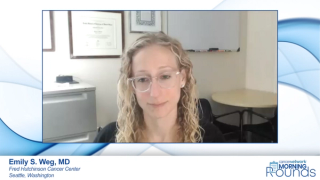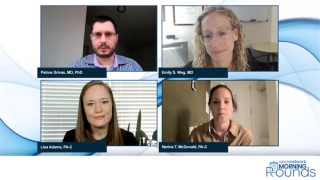
Bladder Cancer
Latest News
Latest Videos

CME Content
More News
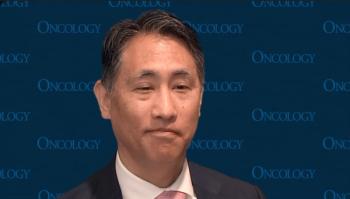
Scott T. Tagawa, MD, MS, FACP, FASCO, discusses the recent approval of nivolumab plus chemotherapy for patients with unresectable or metastatic urothelial carcinoma.

Results from the phase 3 CHECKMATE-901 trial led to the approval of nivolumab plus cisplatin and gemcitabine for patients with unresectable or metastatic urothelial carcinoma.

Data from the phase 3 EV-302 trial support the supplemental biologics license application for enfortumab vedotin plus pembrolizumab for patients with advanced or metastatic urothelial cancer in Japan.

Investigators report clinical benefit with sacituzumab govitecan plus pembrolizumab across all prespecified patient subgroups with metastatic urothelial cancer in cohort 3 of the phase 2 TROPHY-U-01 trial.
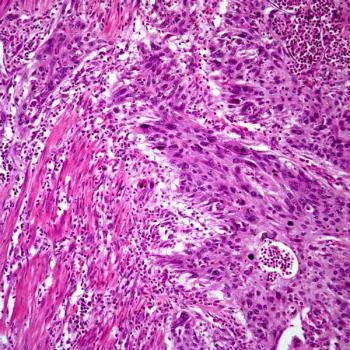
Interim findings from a phase 3 trial support adjuvant pembrolizumab as a new therapeutic option for those with muscle-invasive urothelial carcinoma at high risk of recurrence.
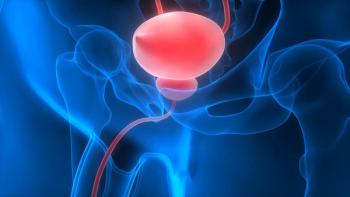
Combining pembrolizumab with cabozantinib produces encouraging efficacy in platinum-ineligible patients with advanced urothelial carcinoma, says Rohit K. Jain, MD, MPH.
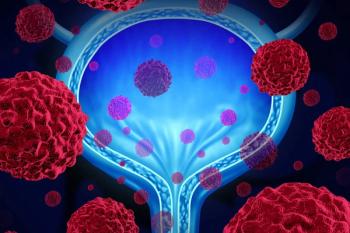
Benefits with enfortumab vedotin plus pembrolizumab in prespecified patient subgroups with urothelial carcinoma in the EV-302 trial appear to be consistent with outcomes in the overall study population.
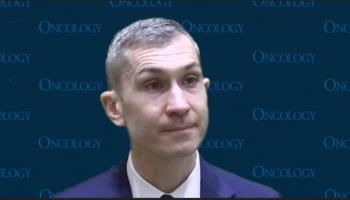
Considering cystectomy in patients with bladder cancer may help with managing the shortage of Bacillus Calmette-Guerin, according to Joshua J. Meeks, MD, PhD, BS.

Clinical practice guideline amendments detail novel urinary biomarkers and agents that may improve Bacillus Calmette-Guerin efficacy in the management of non-muscle invasive bladder cancer.

Patients with locally advanced or metastatic urothelial cancer and visceral disease may particularly benefit from enfortumab vedotin plus pembrolizumab, according to Amanda Nizam, MD.

uMRD-negative status linked to recurrence-free outcomes with nadofaragene firadenovec in NMIBC
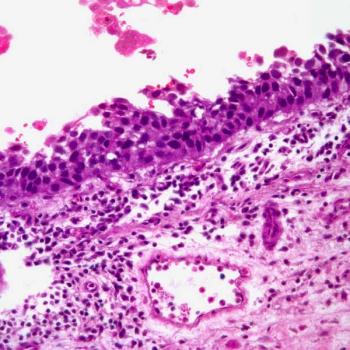
Supporting data for the EMA comes from the phase 3 EV-302 trial, which assessed the efficacy of enfortumab vedotin in combination with pembrolizumab compared with chemotherapy.

Patients with metastatic urothelial carcinoma who are susceptible to FGFR3 gene alterations may now receive erdafitinib, according to the FDA.
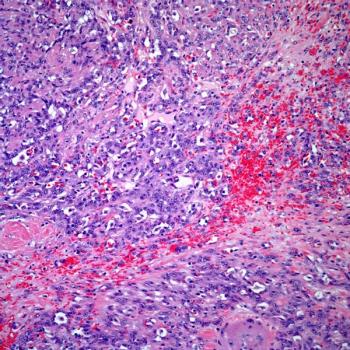
Investigators note that the phase 3 VESPER study’s data support the use of 6 neoadjuvant cycles of dose-dense MVAC vs 4 in muscle-invasive bladder cancer.
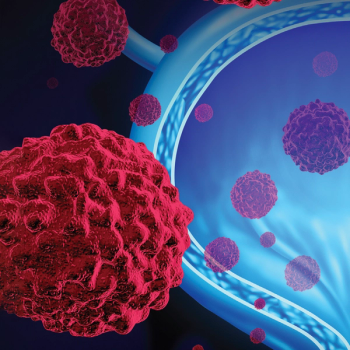
Treatment with atezolizumab monotherapy yields an acceptable toxicity profile compared with chemotherapy among those with advanced or metastatic urothelial carcinoma.

Patients with locally advanced or metastatic urothelial cancer may now receive enfortumab vedotin plus pembrolizumab following its approval by the FDA.
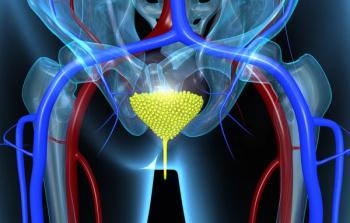
The FDA has set a Prescription Drug User Fee Act date of April 5, 2024 for nivolumab plus chemotherapy in unresectable or metastatic urothelial carcinoma.

If approved, UGN-102 may become the first non-surgical option for patients with low-grade intermediate-risk non–muscle invasive bladder cancer, says Sandip Prasad, MD.

Data from the phase 3 CS-003 study underscore the importance of long-term follow-up findings with novel therapies for high-grade non–muscle-invasive bladder cancer, says Stephen A. Boorjian MD.

Patients receiving neoadjuvant chemotherapy plus radical nephroureterectomy for upper tract urothelial carcinoma appear more likely to experience nodal downstaging.
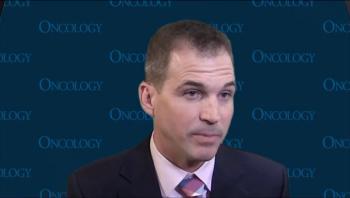
Cretostimogene grenadenorepvec’s efficacy compares favorably with the current nonsurgical standards of care in high-risk, Bacillus Calmette Guerin–unresponsive non-muscle invasive bladder cancer.

More than half of the patients with non–muscle-invasive bladder cancer in the BOND-003 trial achieve a complete response at 6 months following treatment with cretostimogene grenadenorepvec.

Data from the phase 3 EV-301 study turn up no new safety signals in patients with advanced urothelial carcinoma treated with enfortumab vedotin.

More than half of resected patients with muscle-invasive urothelial carcinoma achieve a pathologic response with durvalumab plus neoadjuvant cisplatin/gemcitabine in the phase 2 SAKK 06/17 trial.
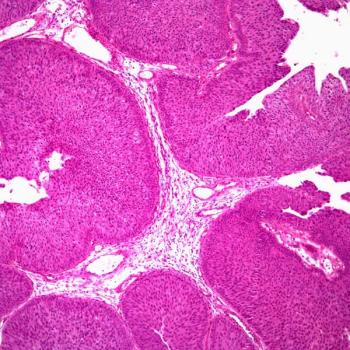
The regulatory agency has set a Prescription Drug User Fee Act date of April 23, 2024 for N-803 plus BCG as a treatment for BCG-unresponsive, non–muscle invasive bladder carcinoma.




